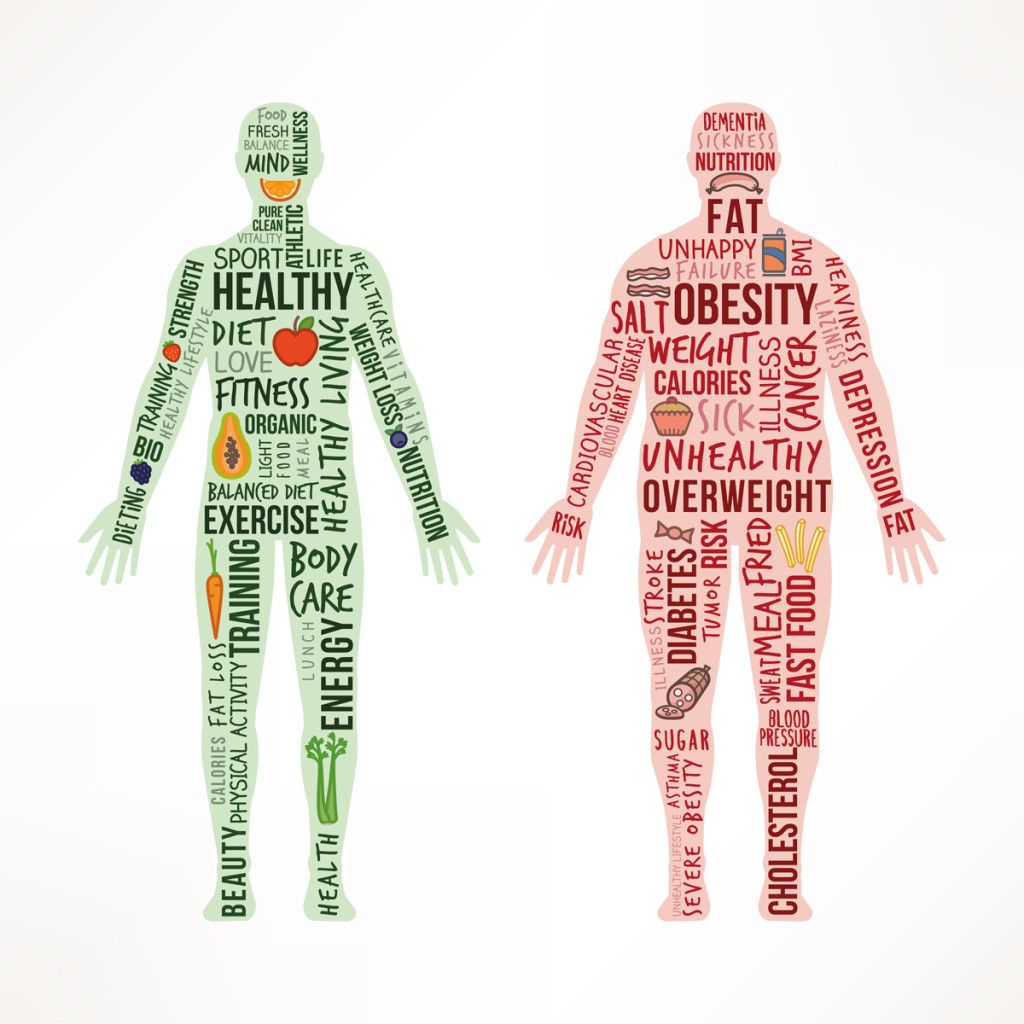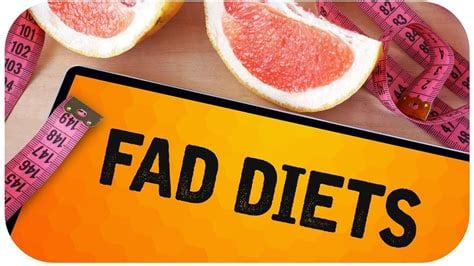Quick-fix diets promise rapid weight loss and a dramatic transformation in a very short time. Their allure is undeniable, offering a temporary escape from the challenges of long-term lifestyle changes. However, beneath the glossy promises and before-and-after photos lie hidden dangers that can jeopardize your health. In this comprehensive article, we will delve into the various health risks associated with quick-fix diets, explore why they often fail in the long run, and discuss sustainable alternatives that promote lasting wellness. We will also provide in-depth analysis supported by scientific evidence and expert insights to help you understand why a balanced, well-planned approach to nutrition is essential for both physical and mental well-being.
Quick-fix diets have become a pervasive phenomenon in today’s fast-paced society. With busy lifestyles and the constant bombardment of social media images showcasing seemingly effortless transformations, many individuals are drawn to these diets in hopes of achieving similar results. However, what these diets often fail to disclose are the significant risks that come along with rapid weight loss methods.
The desire to lose weight quickly can lead individuals to adopt extreme measures that may not be sustainable or healthy. Such approaches often involve severe calorie restrictions, unbalanced macronutrient intake, and even the complete elimination of certain food groups. While these diets might produce short-term results, they can cause a range of health issues including nutritional deficiencies, metabolic disturbances, cardiovascular problems, and psychological stress.
The purpose of this article is to provide a detailed examination of the health risks posed by quick-fix diets and to offer readers a clear understanding of why these diets might be more harmful than beneficial. We will break down the science behind weight loss, address common misconceptions, and suggest healthier alternatives that focus on gradual, long-term lifestyle modifications. Whether you are considering a quick-fix diet or are simply curious about the potential dangers, this guide will serve as a valuable resource for making informed decisions about your health.
The Allure of Quick-Fix Diets
Quick-fix diets captivate us with their promise of dramatic and immediate results. In an era where instant gratification is often prioritized, the idea of losing weight rapidly without having to commit to a prolonged regimen is extremely tempting. Advertisements and testimonials often portray these diets as simple solutions that do not require major changes to your lifestyle. They are marketed with bold claims such as “Lose 10 pounds in 10 days” or “Drop your dress size without lifting a finger.”
The psychological impact of these promises can be profound. For many individuals, the pressure to achieve an ideal body image in a short time is overwhelming. This pressure is compounded by the ever-present influence of social media, where success stories are celebrated without much attention given to the long-term consequences of such diets. As a result, people often embark on these diets with high expectations, only to encounter setbacks and, in some cases, serious health issues once the initial phase is over.
Defining Quick-Fix Diets
Before delving into the health risks, it is important to understand what quick-fix diets entail. These diets are typically characterized by the following features:
A. Extremely Low-Calorie Intake: Many quick-fix diets drastically reduce calorie consumption, sometimes to levels that are unsustainable for maintaining basic bodily functions.
B. Elimination of Entire Food Groups: To accelerate weight loss, some diets cut out entire categories of food, such as carbohydrates or fats, which are essential for a balanced diet.
C. Short Duration: They are usually designed to be followed for a brief period, ranging from a few days to a couple of weeks, with the promise of rapid results.
D. Reliance on Supplements or Special Products: Some of these diets incorporate meal replacement shakes, detox teas, or other specially formulated products that are claimed to boost metabolism or eliminate toxins.
E. Quick Results with No Long-Term Plan: The focus is solely on achieving immediate weight loss, with little regard for long-term sustainability or overall health.
While these characteristics may seem appealing to those seeking immediate gratification, they also lay the groundwork for various health complications that may arise both in the short and long term.
Health Risks Associated with Quick-Fix Diets
The potential dangers of quick-fix diets are multifaceted, affecting nearly every aspect of your health. Below are some of the key risks that individuals may encounter when opting for these diets:
1. Nutritional Deficiencies
When you drastically reduce your calorie intake or eliminate entire food groups, your body is deprived of essential nutrients required for optimal functioning. This can lead to:
A. Vitamin and Mineral Deficiencies: Vitamins such as B12, D, and minerals like calcium and iron are often lacking, which can result in fatigue, weakened immunity, and other serious health issues.
B. Loss of Muscle Mass: Inadequate protein intake can lead to the breakdown of muscle tissue as the body tries to compensate for the lack of energy, which not only reduces metabolic rate but also impacts overall strength.
C. Impaired Organ Function: Over time, the lack of essential nutrients can impair the function of vital organs, increasing the risk of long-term health problems.
2. Metabolic Disruptions
A sudden change in your diet can have a profound impact on your metabolism. Quick-fix diets often lead to:
A. Slowed Metabolic Rate: When the body is subjected to extreme caloric restriction, it may enter a “starvation mode” where it conserves energy by slowing down metabolic processes. This can make it harder to lose weight over time.
B. Hormonal Imbalances: Hormones that regulate hunger and satiety, such as leptin and ghrelin, can be disrupted. This imbalance often leads to increased hunger and cravings, making it difficult to maintain weight loss after the diet ends.
C. Reduced Energy Levels: A lowered metabolism combined with insufficient nutrient intake can lead to chronic fatigue and a decrease in overall energy, affecting both physical performance and daily activities.
3. Cardiovascular Concerns
The heart is particularly vulnerable to the effects of quick-fix diets, as the body’s overall health is compromised when essential nutrients are missing. Some cardiovascular risks include:
A. Increased Heart Rate and Palpitations: Severe calorie restriction and dehydration, common in many quick-fix diets, can lead to irregular heartbeats and increased heart rate.
B. Electrolyte Imbalances: Essential electrolytes such as potassium and magnesium are often depleted in these diets. An imbalance can lead to arrhythmias and, in severe cases, cardiac arrest.
C. Increased Blood Pressure: Some diets may initially lower blood pressure, but the long-term effects can include a rebound increase in blood pressure as the body struggles to maintain homeostasis.
4. Psychological and Emotional Effects
The mental health implications of quick-fix diets are often underestimated. Rapid weight loss methods can have a significant impact on psychological well-being:
A. Mood Swings and Irritability: Drastic changes in diet, particularly those involving low-calorie intake, can lead to fluctuations in blood sugar levels, resulting in mood swings and irritability.
B. Increased Stress and Anxiety: The pressure to achieve quick results can create undue stress and anxiety. The constant worry about food choices, calorie counts, and maintaining the diet can be mentally exhausting.
C. Disordered Eating Patterns: Quick-fix diets may contribute to the development of unhealthy eating habits and, in some cases, eating disorders. The cycle of extreme restriction followed by potential binge eating creates an unhealthy relationship with food.
D. Decreased Self-Esteem: The initial promise of rapid transformation can lead to disappointment if the results are not sustained, impacting self-esteem and overall mental health.
5. Long-Term Health Consequences
While the immediate effects of quick-fix diets are concerning, the long-term consequences can be even more detrimental:
A. Yo-Yo Effect: Many individuals experience a rebound effect, where they quickly regain the weight lost during the diet. This cycle of weight loss and gain, known as yo-yo dieting, is associated with increased risks of obesity, type 2 diabetes, and cardiovascular disease.
B. Digestive Issues: Rapid dietary changes can disrupt the balance of gut bacteria, leading to gastrointestinal problems such as bloating, constipation, or even more severe digestive disorders over time.
C. Bone Density Loss: The lack of calcium and vitamin D in many quick-fix diets can weaken bones, increasing the risk of fractures and osteoporosis, particularly in older adults.
D. Immune System Suppression: A weakened immune system can result from prolonged nutritional deficiencies, leaving the body more vulnerable to infections and illnesses.
The Science Behind Sustainable Weight Loss
Unlike quick-fix diets, sustainable weight loss is grounded in scientific principles that focus on gradual, consistent change rather than drastic, short-term interventions. Here are some key components of a sustainable approach to weight management:
A. Balanced Nutrition: A healthy diet should include a variety of food groups that supply all the necessary nutrients. This means incorporating lean proteins, whole grains, fruits, vegetables, and healthy fats.
B. Caloric Balance: Instead of extreme calorie restriction, sustainable weight loss focuses on maintaining a balance between calories consumed and calories expended. This allows the body to function efficiently while gradually shedding excess weight.
C. Regular Physical Activity: Exercise plays a crucial role in weight management. A combination of cardiovascular exercises, strength training, and flexibility workouts can help boost metabolism and maintain muscle mass.
D. Mindful Eating: Paying attention to hunger cues, practicing portion control, and avoiding distractions while eating can help develop a healthier relationship with food. Mindful eating encourages individuals to savor their meals and recognize the signals their bodies send.
E. Behavioral Changes: Long-term weight loss is as much about changing habits as it is about diet. This might involve strategies like setting realistic goals, monitoring progress, and seeking support from professionals or community groups.

How Quick-Fix Diets Fail in the Long Run
While the short-term benefits of quick-fix diets might seem appealing, their long-term consequences often outweigh the initial results. Here are some reasons why these diets are generally unsustainable:
A. Rapid Weight Regain: Once the diet ends, the body’s slowed metabolism and hormonal imbalances often result in rapid weight regain. This not only reverses the benefits but can also lead to a cycle of repeated dieting and weight fluctuations.
B. Physical and Mental Exhaustion: The stress of maintaining a highly restrictive diet can lead to both physical fatigue and mental burnout. Many dieters eventually abandon these regimens due to their unsustainable nature.
C. Lack of Education on Healthy Habits: Quick-fix diets rarely offer the guidance needed to build long-lasting healthy habits. Without understanding the principles of balanced nutrition and exercise, individuals are ill-equipped to maintain their progress once the diet ends.
D. Potential for Serious Health Issues: As discussed earlier, the risks of nutritional deficiencies, metabolic disruptions, and cardiovascular problems can have lasting impacts on overall health, making quick-fix diets a risky proposition.
Psychological Implications and the Cycle of Dieting
The psychological burden of constantly chasing quick-fix results can be overwhelming. Many individuals fall into a perpetual cycle of dieting and weight gain, which can lead to serious mental health issues over time. Here are some key points regarding the psychological impact:
A. Emotional Roller Coaster: The highs of rapid weight loss are often followed by the lows of weight regain. This cycle can create a sense of failure and demotivation, impacting self-confidence and overall mental well-being.
B. Obsession with Food and Body Image: Constantly monitoring food intake and obsessing over calorie counts can lead to an unhealthy fixation on body image. This can further fuel anxiety, stress, and in severe cases, eating disorders.
C. Social Isolation: The strict rules and limitations imposed by quick-fix diets can lead individuals to withdraw from social activities that involve food, further isolating them and compounding feelings of loneliness or depression.
D. Loss of Intuitive Eating: When following extreme diets, the natural signals of hunger and fullness can be overridden. This loss of intuitive eating can make it difficult to recognize when your body truly needs nourishment.
Case Studies and Real-Life Experiences
To illustrate the potential dangers of quick-fix diets, consider the following case studies and anecdotal evidence gathered from individuals who have experienced these diets firsthand:
A. Case Study One:
Jane, a 32-year-old marketing professional, embarked on a 10-day detox diet promising rapid weight loss. Initially, she lost over 5 pounds; however, within two months, Jane regained not only the lost weight but also experienced chronic fatigue and nutrient deficiencies. Medical tests later revealed low iron levels and a weakened immune system. Jane’s experience is a cautionary tale of the hidden long-term effects of short-term diets.
B. Case Study Two:
Michael, a 28-year-old fitness enthusiast, tried an extreme low-carb diet that eliminated most sources of carbohydrates from his meals. Although he saw a significant drop in weight initially, Michael soon encountered severe headaches, dizziness, and a decrease in exercise performance. After consulting with a nutritionist, he learned that his body was deprived of essential energy sources, and he had inadvertently compromised his overall health.
C. Case Study Three:
Sarah, a college student, was lured by the promise of quick results from a celebrity-endorsed diet plan. The regimen required her to consume less than 800 calories a day, resulting in rapid weight loss. However, Sarah soon suffered from mood swings, anxiety, and persistent hunger. The psychological toll eventually led her to abandon the diet, and she found it difficult to return to a balanced eating pattern, illustrating how extreme diets can disrupt mental as well as physical health.
Tips for Achieving Sustainable Weight Loss
Transitioning away from quick-fix diets to a more sustainable approach involves making gradual, manageable changes. Below are several strategies to help ensure a healthier path to weight loss:
A. Develop a Balanced Meal Plan:
- Ensure that your diet includes a variety of foods from all major food groups.
- Incorporate lean proteins, whole grains, fruits, vegetables, and healthy fats into your meals.
- Plan meals ahead of time to avoid impulsive, unhealthy food choices.
B. Engage in Regular Physical Activity:
- Incorporate at least 150 minutes of moderate aerobic exercise per week.
- Add strength training exercises to maintain muscle mass and boost metabolism.
- Find physical activities you enjoy to keep your routine engaging and sustainable.
C. Practice Mindful Eating:
- Listen to your body’s hunger and fullness signals.
- Avoid distractions while eating, such as television or smartphones.
- Take the time to savor each bite and appreciate the flavors and textures of your food.
D. Set Realistic Goals:
- Establish achievable short-term and long-term objectives.
- Focus on gradual improvements rather than rapid changes.
- Celebrate small victories along your journey to build confidence and motivation.
E. Seek Professional Guidance:
- Consult with a registered dietitian or nutritionist for personalized advice.
- Consider professional support if you struggle with emotional or psychological issues related to dieting.
- Join support groups or communities with similar health goals to share experiences and tips.
The Role of Lifestyle in Weight Management
Weight management is not solely about the food you consume—it’s about creating a lifestyle that supports overall well-being. Quick-fix diets often overlook the broader aspects of health, which include not only nutrition but also sleep, stress management, and physical activity.
A. Sleep:
- Adequate sleep is essential for the body to repair and regenerate.
- Poor sleep can lead to hormonal imbalances that affect hunger and satiety.
- Establish a consistent sleep routine to improve both your physical and mental health.
B. Stress Management:
- Chronic stress can trigger overeating and disrupt metabolic processes.
- Incorporate stress-relief practices such as meditation, yoga, or deep breathing exercises.
- Recognize the importance of mental health in your overall weight management plan.
C. Hydration:
- Drinking enough water is crucial for maintaining metabolic functions and supporting digestion.
- Dehydration can sometimes be mistaken for hunger, leading to unnecessary snacking.
- Aim for at least 8 glasses of water a day, and adjust based on your activity level and environment.
D. Social Support:
- Engage with family and friends who encourage a healthy lifestyle.
- Sharing your goals and challenges can provide motivation and accountability.
- Consider joining groups or classes that promote physical fitness and wellness.

Debunking Myths Surrounding Quick-Fix Diets
Many misconceptions about quick-fix diets contribute to their popularity despite the associated risks. Let’s address some common myths and clarify the realities:
A. Myth: Rapid Weight Loss Equals Long-Term Success
- Reality: While you might see quick results initially, most rapid weight loss is temporary. The body’s metabolism often slows down to conserve energy, leading to weight regain over time.
B. Myth: Extreme Calorie Cutting is Effective
- Reality: Severely reducing calorie intake can harm your body’s natural metabolic processes, resulting in nutrient deficiencies and long-term health complications.
C. Myth: You Can Outrun a Poor Diet
- Reality: No amount of exercise can completely offset the damage caused by an unbalanced diet. Sustainable weight loss requires a combination of proper nutrition and physical activity.
D. Myth: Detox Diets Cleanse Your System
- Reality: The body has its own highly efficient detoxification system—primarily the liver and kidneys. Extreme detox diets can actually deprive your body of the nutrients it needs to function optimally.
Scientific Insights on Nutrient Absorption and Metabolic Health
Numerous studies have shown that the human body functions best when provided with a balanced array of nutrients. Nutrient absorption is a complex process that involves the interaction of enzymes, hormones, and digestive organs. When a diet is overly restrictive, several key issues can arise:
A. Impaired Digestion:
- The absence of certain food groups can disrupt the balance of gut microbiota, leading to issues such as bloating, constipation, or diarrhea.
- A diverse diet is essential for maintaining the health of your digestive system.
B. Reduced Energy Production:
- Carbohydrates are the body’s primary source of energy. Eliminating them can leave you feeling fatigued and unable to perform daily tasks.
- Balanced macronutrient intake ensures that your body has a steady supply of energy.
C. Altered Hormonal Regulation:
- Hormones such as insulin, ghrelin, and leptin play crucial roles in hunger and satiety. An imbalanced diet can disrupt the delicate interplay of these hormones, leading to overeating or extreme hunger.
Integrating Long-Term Strategies for Optimal Health
The key to avoiding the pitfalls of quick-fix diets lies in adopting a long-term, sustainable approach to nutrition and lifestyle. Here are several strategies that can help you transition to healthier habits:
A. Personalized Nutrition Plans:
- Every individual’s nutritional needs are different. Consulting with a nutrition expert can help you develop a plan that fits your lifestyle and goals.
- Personalized plans take into account factors such as age, activity level, medical history, and personal preferences.
B. Regular Health Monitoring:
- Routine check-ups and health screenings can help you track your progress and catch any potential issues early.
- Monitoring vital signs, blood work, and other health markers ensures that your weight loss journey is both safe and effective.
C. Holistic Wellness Practices:
- Incorporate practices such as mindfulness, meditation, and regular physical activity to support both mental and physical health.
- A holistic approach recognizes that well-being extends beyond just the number on the scale.
D. Long-Term Goal Setting:
- Instead of aiming for rapid results, set realistic and sustainable goals that promote gradual progress.
- Regularly revisiting and adjusting your goals can help keep you motivated and on track.
Conclusion
Quick-fix diets may seem like an attractive shortcut to weight loss, but the potential health risks far outweigh the temporary benefits. From nutrient deficiencies and metabolic imbalances to serious cardiovascular concerns and psychological stress, these diets pose significant dangers that can impact your long-term well-being. Sustainable weight loss is not about rapid results but about creating a balanced lifestyle that includes proper nutrition, regular exercise, and mindful living.
By understanding the science behind nutrition and adopting a more holistic approach, you can avoid the pitfalls of extreme dieting. Embrace a plan that prioritizes gradual, sustainable changes and recognize that lasting health is a journey rather than a destination. Remember, true wellness is achieved through balance, moderation, and a commitment to lifelong healthy habits.
Making informed decisions about your diet not only protects your physical health but also supports your mental and emotional well-being. As you move forward, focus on developing a personalized plan that considers your unique needs and goals. Seek professional guidance when necessary, and never be swayed by the allure of quick fixes that promise the impossible. Your body deserves the care and respect that comes with a balanced, sustainable approach to nutrition and lifestyle.
Ultimately, understanding the risks of quick-fix diets is the first step in reclaiming your health. Let this guide serve as a resource to help you navigate the complex world of weight loss and nutrition, empowering you to make choices that will benefit you for years to come.












